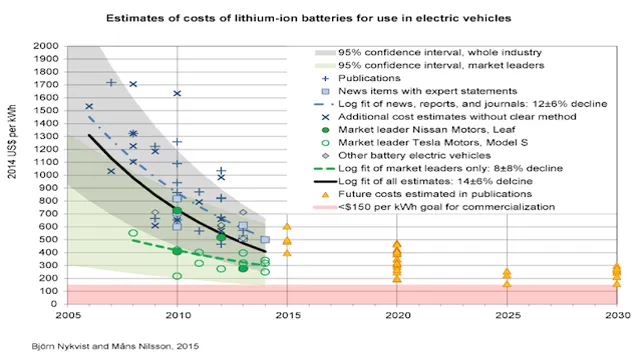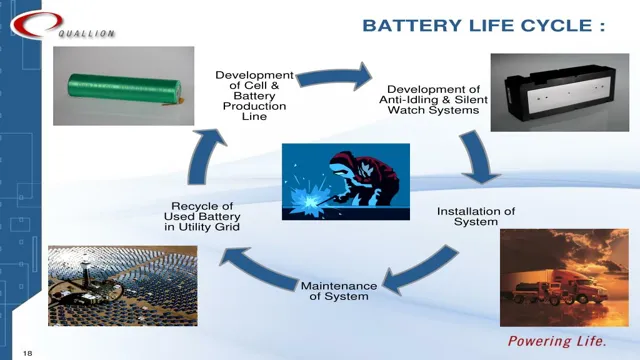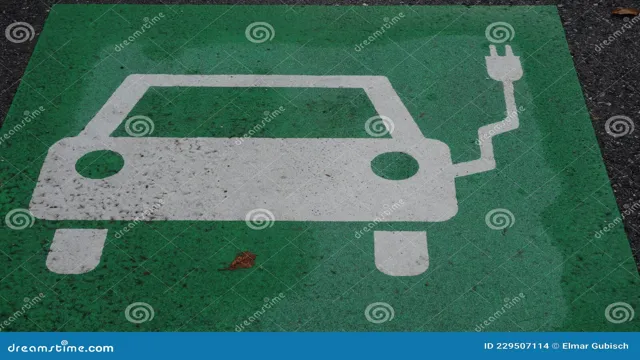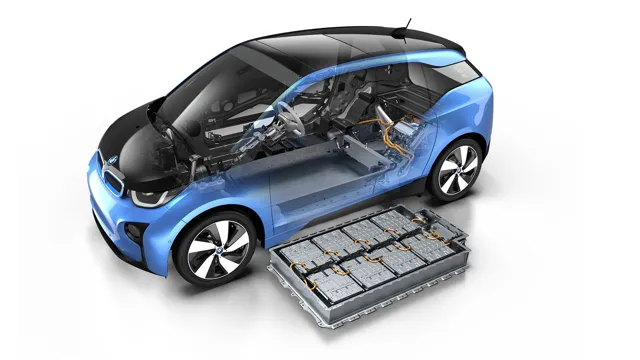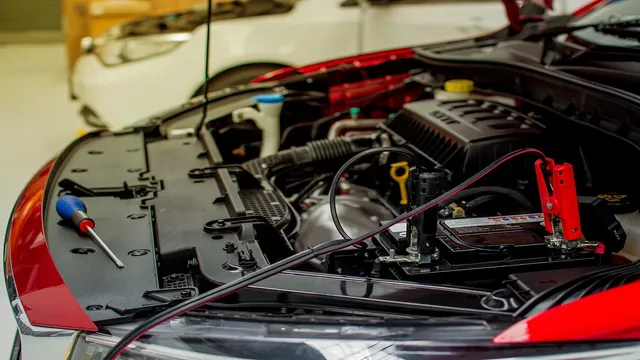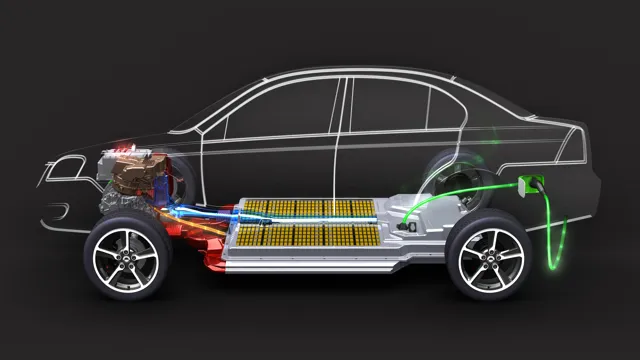Unlocking the True Cost of Electric Car Batteries in 2021: A Comprehensive Guide
Are you a fan of electric cars? With climate change and environmental concerns becoming increasingly pressing, electric cars have been touted as the answer to many of our problems. Not only are they better for the environment as they produce zero emissions, but they are also cheaper to run than traditional gasoline-powered cars. However, there is one aspect of electric cars that could be costing you a pretty penny: the batteries.
The high cost of electric car batteries is a major barrier to adoption for many people. In this blog post, we will explore why electric car batteries are so expensive and what it means for the future of electric cars. So, buckle up and let’s take a deep dive into the world of electric car batteries!
Average Electric Car Battery Costs
When it comes to owning an electric car, one of the biggest concerns people have is the cost of the battery. However, the good news is that electric car battery costs continue to drop year after year. In fact, a report by BloombergNEF found that the average cost of an electric vehicle battery pack was $137 per kilowatt-hour in 2020.
This represents a significant decrease from just a few years ago when the average cost was over $1,000 per kilowatt-hour. As battery technology continues to improve and economies of scale kick in, we can expect electric car battery costs to continue to decline, making electric vehicles more affordable and accessible for the average consumer. So, if you’ve been thinking about making the switch to electric, now may be a good time to do so!
Expensive Upfront Costs
Electric car batteries can cost a pretty penny. In fact, the average cost can be quite steep and this upfront expense is often cited as one of the main deterrents when it comes to electric car ownership. While prices can vary greatly depending on the make and model of the car, it’s worth noting that the battery alone can cost up to $15,000 or more.
However, it’s also essential to consider the long-term savings that come with owning an electric car, such as the lower cost of maintenance and fuel. Electric cars are much more energy-efficient than traditional gas-powered cars, and the cost of charging them can be significantly lower than the cost of fueling up with gasoline. So, while the upfront battery cost may be daunting, it’s important to consider the big picture and the potential savings in the long run.
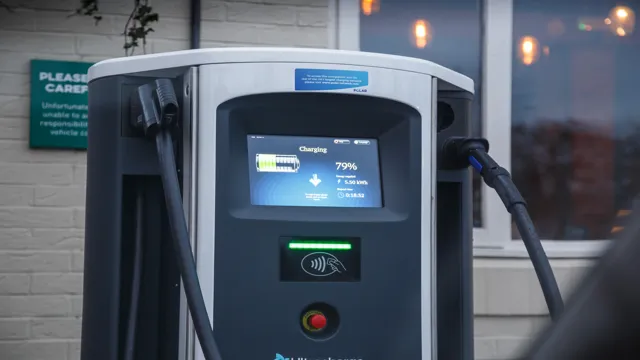
Long-Term Savings Potential
When it comes to the long-term savings potential of electric cars, a major factor to consider is the average cost of their batteries. According to recent data, the average cost of an electric car battery pack has been steadily declining over the past decade, dropping by around 80% since 20 This means that as the technology becomes more widespread, electric vehicles are becoming increasingly affordable and accessible.
In fact, experts predict that by 2025, electric cars could reach cost parity with traditional gas-powered vehicles. The decreasing cost of electric car batteries means that drivers can save money on fuel and maintenance costs over the long term, making them an attractive option for those looking to save money while also reducing their carbon footprint. So, if you’re looking for an eco-friendly and cost-effective way to get around, an electric car may be just what you need to achieve your financial and environmental goals.
Factors Affecting Electric Car Battery Costs
Electric car battery costs don’t just depend on the battery technology being used, but are also influenced by other factors. One of these factors is the economies of scale associated with production. Higher demand for electric vehicles and batteries means more production, which leads to lower costs due to increased efficiency and reduced waste.
Additionally, innovations in battery manufacturing, like the use of new materials or improved production processes, can also affect the cost of battery production. Another factor is the cost of raw materials that go into making the battery, with materials such as lithium, cobalt, nickel, and graphite being key components. Changes in the supply and demand of these materials can alter the battery’s production costs.
Overall, a combination of technological advancements, manufacturing processes, and the availability of key materials will play crucial roles in shaping the costs of electric car battery production, and ultimately the adoption of electric vehicles.
Battery Size and Capacity
When it comes to electric car battery costs, one of the biggest factors is the size and capacity of the battery. This is because the larger the battery, the more expensive it is to produce. Additionally, larger batteries require more materials, which can further drive up the cost.
However, it’s important to note that battery size isn’t the only factor that affects the cost of electric car batteries. Other factors that can impact cost include the type of materials used, manufacturing processes, and supply chain issues. Ultimately, the cost of electric car batteries is expected to decrease over time as advancements in technology and production methods make them more efficient and cost-effective.
Materials and Manufacturing Processes
There are various factors that contribute to the cost of electric car batteries. One key factor is the material used for the battery cells. Lithium-ion batteries are the most common type used in electric cars and their cost is determined by the price of the raw materials, such as lithium, cobalt, and nickel.
Another significant factor is the manufacturing process. The use of automated processes, economies of scale, and improved battery designs can greatly reduce the cost of production, ultimately lowering the price for consumers. Additionally, advancements in battery technology, such as the development of solid-state batteries and improved charging infrastructure, can decrease the overall cost and increase the efficiency of electric vehicle batteries.
However, research and development costs can also play a role in determining the cost of electric car batteries, as companies invest in creating more advanced and efficient battery technologies. Overall, the cost of electric car batteries is dependent on a multitude of factors, but ongoing advancements in materials and manufacturing processes are crucial in making electric vehicles more accessible and affordable for consumers.
Supply and Demand
The cost of electric car batteries is determined by multiple factors, including supply and demand. The increased number of electric cars on the market has grown the demand for batteries, leading to the cost of lithium-ion batteries to decrease. On the other hand, the supply of key materials like cobalt and nickel used in battery production can also impact the final cost.
If there is a shortage of these crucial elements, prices can increase rapidly. Other factors like research and development costs and local taxes can also affect the final price of the battery unit. However, as technology improves and electric car production continues to increase, the cost of batteries is expected to decrease even further in years to come, making electric cars more affordable for the average consumer.
Ways to Reduce Electric Car Battery Costs
Electric car battery costs can be a major deterrent for many people considering making the switch to an electric vehicle. But there are ways to reduce these costs. One way is to invest in a car with a smaller battery.
While a larger battery may offer a longer driving range, it also comes with a higher price tag. Choosing a car with a smaller battery that still meets your daily driving needs can be a more budget-friendly option. Another way to reduce electric car battery costs is by taking advantage of tax credits and incentives.
Many governments offer rebates or tax credits for purchasing an electric vehicle, which can significantly reduce the overall cost. Lastly, keeping up with regular maintenance can help prolong the life of your battery. Simple things like keeping your battery charged between 20-80% and avoiding extreme temperatures can go a long way in helping you save money on repairs or a replacement battery.
In sum, reducing electric car battery costs is possible with careful consideration of car size, tax incentives, and routine maintenance.
Government Incentives and Rebates
One of the most significant ways to reduce the cost of an electric car battery is through government incentives and rebates. Many countries are offering tax credits, rebates, and other financial incentives for electric car owners. For instance, in the United States, federal tax credits of up to $7,500 are available for the purchase of a new electric car.
Some states also provide additional incentives like free charging or reduced insurance rates. In the UK, drivers can claim a discount of up to £3,000 on a new electric car. In Norway, electric cars are exempt from taxes, tolls, and public parking fees, making them a more affordable option.
These incentives can make a considerable difference in the overall cost of owning an electric vehicle and make it more accessible for drivers who are thinking about switching to green energy.
Leasing or Financing Options
When it comes to purchasing an electric car, the battery can definitely be a major expense. Fortunately, there are a few ways you can reduce the cost of the battery and make owning an electric car more affordable. One option is to lease the battery instead of buying it outright.
This can significantly reduce the upfront cost of the car and the monthly payments, making it a more manageable expense. Another option is to look at financing options that offer lower interest rates or longer terms. This can help spread out the cost of the battery over a longer period of time, making it easier to budget for.
Additionally, some manufacturers offer rebates and incentives for purchasing electric cars that can help offset the cost of the battery. By exploring all of these options, you can find the most affordable way to make the switch to an electric car and enjoy the benefits of this eco-friendly mode of transportation.
Future Outlook of Electric Car Battery Costs
The future outlook for electric car battery costs is looking promising. The renewable energy industry continues to witness significant developments in electric car battery technology, which will eventually lead to lower battery costs. In recent years, electric car manufacturers have been investing heavily in research and development, helping to reduce the cost of producing electric car batteries.
According to BloombergNEF, by 2023, electric car batteries’ average price is expected to fall to around $100/kWh. It is worth noting that electric car battery prices vary depending on factors such as the car model and the battery’s size. Hence, it may take longer for electric car battery costs to become more affordable.
Nonetheless, as electric car adoption continues to grow globally, economies of scale will push down battery costs. Overall, the future outlook for electric car battery costs is exciting, and as technology continues to evolve, electric vehicles will become more cost-competitive with their gasoline counterparts.
Conclusion
In conclusion, the debate around electric car battery costs is truly electrifying. While some may argue that the high initial expenses are a current roadblock, the long-term benefits of reduced emissions and decreased dependence on fossil fuels are worth the investment. And with advancements in technology and increased competition, the day may come when electric car batteries are affordable for all.
As the famous inventor Thomas Edison once said, “The doctor of the future will give no medicine but will interest his patients in the care of the human frame, in diet and in the cause and prevention of disease.” Perhaps in the future, we will say, “The driver of the future will use no gasoline but will recharge their battery, in sustainability and in the cause and prevention of climate change.”
FAQs
How much does it cost to replace an electric car battery?
The cost of replacing an electric car battery varies depending on the make and model of the vehicle, as well as the size and capacity of the battery. On average, battery replacement can cost anywhere from $5,000 to $15,000.
Can the cost of replacing an electric car battery be covered under warranty?
Yes, in some cases the cost of replacing an electric car battery may be covered under the manufacturer’s warranty. However, this coverage typically has limitations and conditions, so it’s important to read the warranty carefully.
Are there any incentives or subsidies available to help offset the cost of electric car battery replacement?
Some states and municipalities offer rebates or tax credits for the purchase of an electric vehicle, which may help offset the cost of battery replacement. Additionally, some automakers offer programs to help cover the cost of battery replacement for certain models.
How can I prolong the lifespan of my electric car battery to avoid costly replacements?
There are several things you can do to extend the lifespan of your electric car battery, such as avoiding repeated full discharges, keeping the battery cool, and performing regular maintenance on your vehicle.

